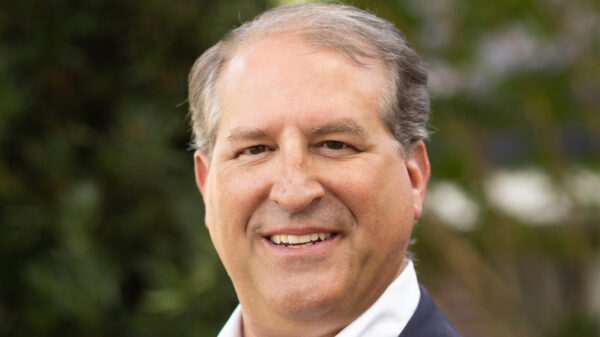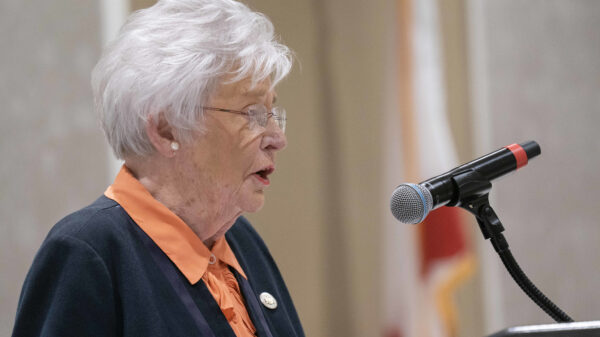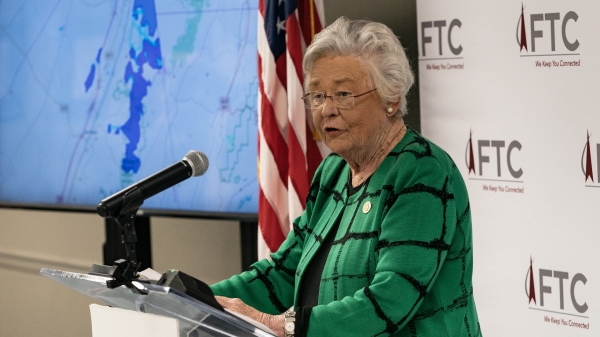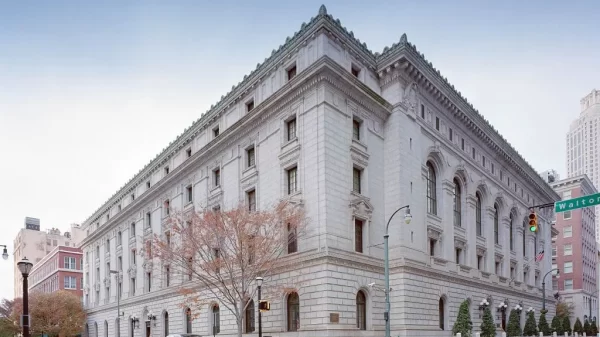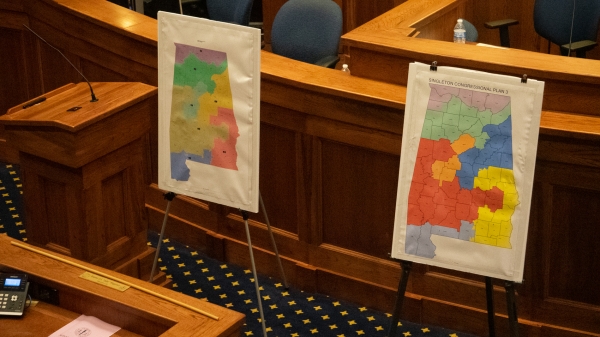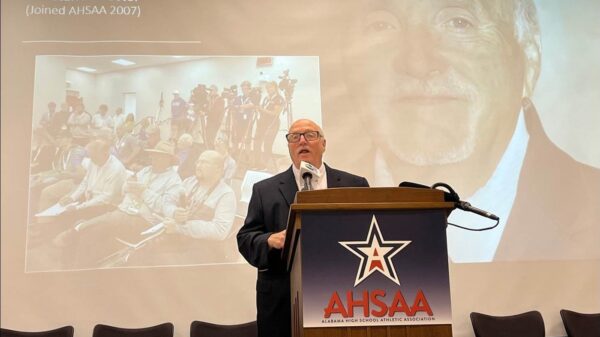By Sam McLure
Alabama Political Reporter
On March 8, 2017, at 1:30 the Alabama Legislature will be considering a bill that would decriminalize possession of less than one ounce of marijuana. The House of Representative’s Judiciary Committee will be holding a public hearing on HB 269 in Room 617 at 1:30 pm.
HB 269 stands on the shoulders of a strong line of marijuana decriminalization bills over the last three years. In 2014, Carly’s Law paved the way for marijuana by allowing UAB to test the effectiveness of CBD oil on seizure patients. In 2016, Leni’s Law built on that success and completely decriminalized the use of CBD oil for seizure patients. Leni’s Law was sponsored by Republican Rep. Mike Ball and Republican Senator Paul Sanford. It passed the House and Senate with almost unanimous support; with a 95-4 and 29-3 vote count, respectively.
Like Carly’s Law and Leni’s Law, HB 269 is co-sponsored by a Republican – Rep. Alan Harper.
Does this tale seem strange? Did you know Alabama Republicans are moving closer and looser towards regulating and taxing marijuana like alcohol?
Here’s five common-sense reasons why Republicans are going to pot.
1. Financial Independence from Federal Government
For the next four years, we might not hear much whining from Republicans about Federal Government overreach. However, we must not forget that it was not too long ago the Federal Government was dictating to Alabama that we must teach transgender sex education in public schools. And threat of non-compliance loomed large – the Federal Government might cut funding!
Alabama receives $8.4 billion in Federal money every year. We are the third most dependent state in the Union. Much like the 40 year old man who lives in his mother’s basement, and wears his underwear on his head when he leaves the house because his mother tells him to, the Federal Government seeks to incite the states to comply with policies that are just as silly.
Just this Legislative session, we’ve seen an Orwellian Data Collection bill and a Licensing of Sunday School Nurseries bill, that are best explained by the carrot – if Alabama complies with the Federal Government’s policies, we will get more money from the Federal Government.
It’s high time Alabama starts making political decisions through the lens of financial independence. We may have a Republican President now, but that won’t last for long. We must evaluate our priorities the way we would expect the 40 year-old man to evaluate his priorities. Should the 40 year-old basement-dweller be spending all his money on video games or should he be saving it to pay for his own apartment? Should 40 year-old Fred spend all his time playing video games, or should he get a job?
The same goes for Alabama. Should Alabama spend valuable resources criminalizing a plant whose medical benefits are well-documented and whose harm, at worst, is not nearly as dangerous as tobacco or alcohol? Washington State saw a tax advantage of $350,000,000.00 in 2016 – if Alabama were seeking financial independence from the Federal Government, would it be passing up such a sublime revenue stream?
2) Criminal Justice Reform a.k.a. Prison Reform
Much ink has been spilled evaluating Gov. Bentley’s prison reform legislation. And for good reason … Alabama has a problem. Our prisons stand at 185 percent capacity. The prisoner-to-guard ratio is scary … just plain scary. Gov. Bentley proposes to build 4 new mega-prisons and consolidate all the other state prisons into those 4 units. On its surface, this proposal is driven by the economies-of-scale argument, and it seems to make sense.
However, it doesn’t really get to the root of the problem. It’s like combatting urban sprawl by adding more lanes to the interstate – you’ll just have to keep adding more lanes. The United States has only 5 percent of the world’s population, but houses 25 percent of the world’s prisoners. Since the 1970s, there has been over a 500 percent increase in the prison population.
What’s the cause? Some point the finger to the sinister private-prison industry, but Alabama has no private prisons. More realistically, the boom in prison population is most likely linked to mandatory sentencing and the war on drugs.
The low-hanging fruit on the tree of criminal justice reforms is to stop incarcerating users of marijuana. Some estimates put the population of non-violent drug offenses in Alabama prisons at 30 percent. I’m no mathematician, but if our prison population is at 185 percent and we cut out 30 percent of that population, I think we wouldn’t need Gov. Bentley’s $1.5 billions prison building plan.
3) Tobacco Use Has Not Been Eradicated Through Prohibition, But Rather Education
Perhaps the only reason you aren’t reading this article in a smoke-filled room is because private citizens started launching education campaigns against the tobacco industry, 50 years ago. Big tobacco came under attack from all angles. The negative health risks of overusing tobacco were plastered on billboards, buses, and magazines. Anti-smoking advertisements were seen on television ads and heard on radio programing. Now, 50 years later, almost no one smokes.
Would prohibition have been more successful? How successful was the alcohol prohibition movement to eliminating alcohol consumption? No, we reap the benefits of a campaign of education, not prohibition.
Persons who have real drug addiction need counseling, not incarceration. And, just as the young were steered away from tobacco use, the young can be steered away from drug use through education.
Guess what … much of this education plan can be funded through taxing marijuana.
4) Marijuana Criminalization Has Disparate Impact on Minorities
The marijuana criminalization movement started as a method to subjugate Mexican immigrants, and America’s first drug czar sought support for cannabis criminalization by warning that marijuana would make white women want to have sex with black men.
The poisonous fruit of the drug war’s racist tree is blindingly potent.
For example, a recent study indicates that whites use marijuana at the same rates as blacks, however blacks are 4 times more likely to be incarcerated for it. Another study points to the reality that 1-in-3 black men will spend time in prison … and much, Much, MUCH of that is due to inequalities in the criminal justice system.
Given the harmless side-effects, and often medicinal benefits of marijuana, decriminalization presents an effortless step towards alleviating these ills.
5) Purpose of Government and Logical Consistency
Most Republicans cry foul when attempting to have logical discussions with most “progressives” about abortion. A similar foul can be called with marijuana reform on some of Alabama’s “Power Republicans.” Principled Republicans know that there are only two legitimate purposes of government: protect the weak and promote productive industry. Everything else is waste.
If we take the premise that criminalizing marijuana serves one of these two purposes, then we most also turn our eyes to using government for the prohibition of more harmful vices like ice cream and Sponge Bob Square Pants. Both have a desperate impact on the poor, both decrease work-drive capacity, and both increase the cost of health care for the community … arguably.
Principled Republicans are turning en masse to honestly appraise the prejudices of the past and look for solutions to heal and mend society. More and more, Republicans are turning to pot.

